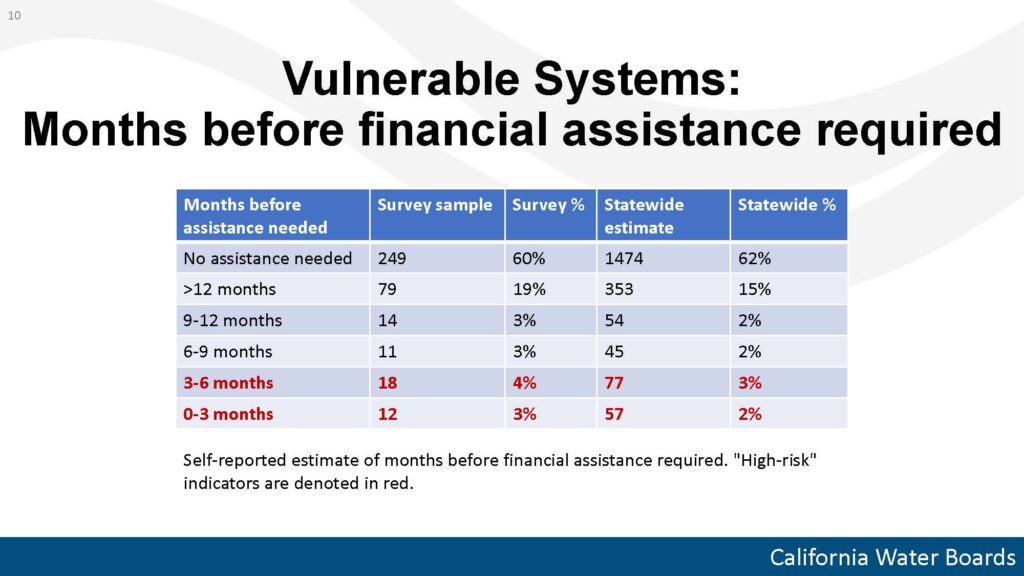California water systems large and small are facing unprecedented financial challenges brought on by the coronavirus pandemic according to a survey conducted by the State Water Resources Control Board (SWRCB).
The SWRCB surveyed more than 500 small- to medium-sized water systems and 150 large systems, which provide service to about 28 million Californians. The data, released this week, painted a chilling picture. About 1.6 million residential water customers, or 12% of all households have been unable to pay their bills, many of those households owing $500 or more through October 2020.
While the pandemic did not create the water-debt crisis, the debt has ballooned since Governor Gavin Newsom ordered a moratorium on water shutoffs for unpaid bills last April. Total household debt statewide is currently at $1 billion and the SWRCB estimates $600 million of that debt is specifically for drinking water.
“For nearly a year, the COVID-19 pandemic has made it difficult for many people to pay their bills due to job loss and other hardships. The findings in our survey give us the first clear picture of the impacts on Californians and our community water systems,” said E. Joaquin Esquivel, chair of the State Water Board.
California residents aren’t the only ones who are struggling. Many smaller water systems that were struggling financially before the pandemic are now facing even tougher challenges by prolonged revenue losses. According to the SWRCB, 25 small and medium-sized water systems could go under within 180 days without government financial intervention.
Jan 19, 2021 COVID Drinking Water Survey Board Presentation
“We are going to do everything in our power to get emergency assistance to any water systems that think they are in danger of not being able to maintain service. We are also encouraging water systems that were not part of the survey to contact us right away if they are facing financial challenges related to COVID,” said Darrin Polhemus, deputy director of the State Water Board’s Division of Drinking Water.
The SWRCB will use survey responses to inform policymakers of options for financial assistance and emergency response for water systems and households experiencing economic hardship. Full results of the survey are available online.
 California Water News Daily Your Source For Water News in California
California Water News Daily Your Source For Water News in California



